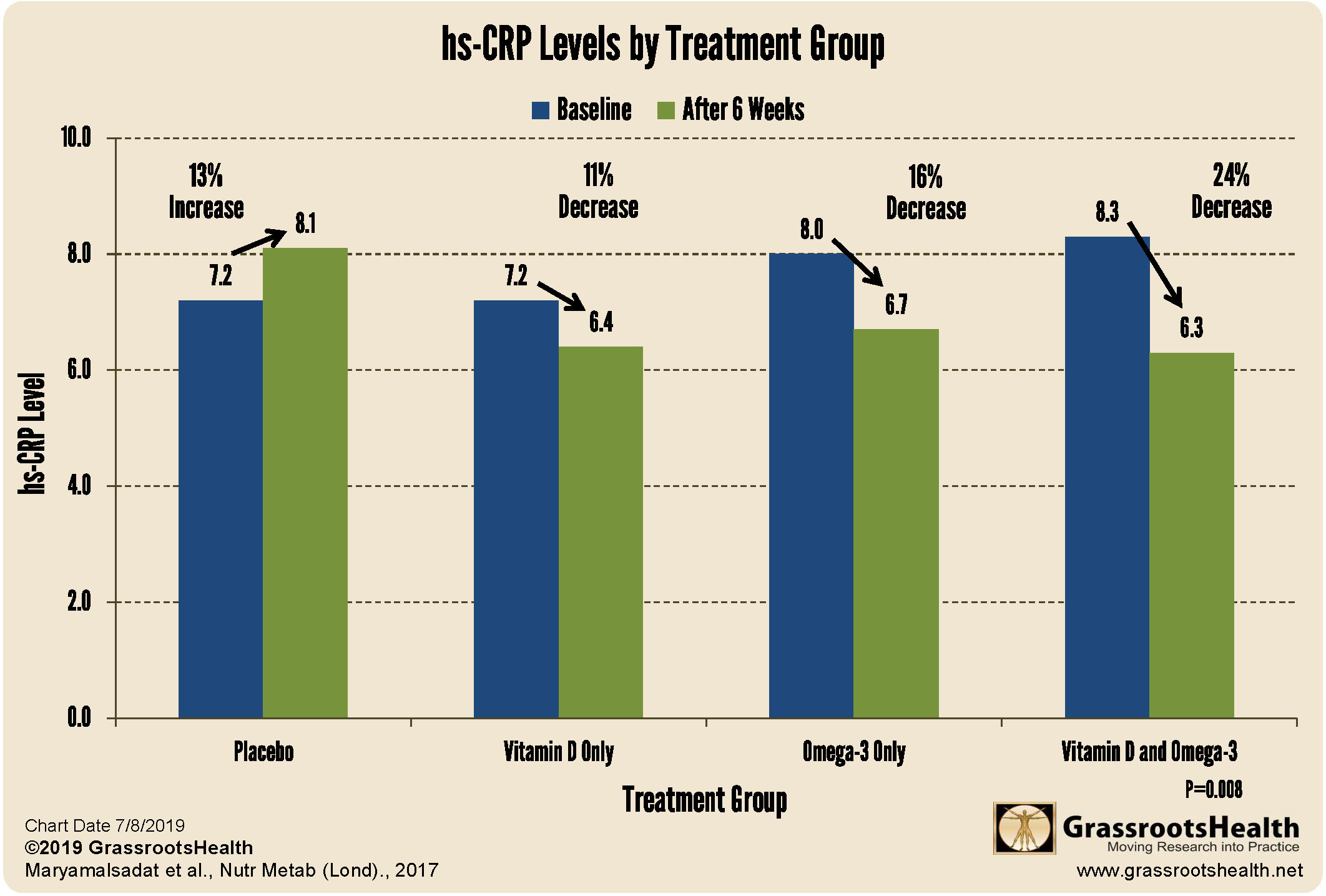Published on July 9, 2019
Inflammation has been linked to gestational diabetes, a pregnancy condition that affects 5% of pregnancies worldwide. Gestational diabetes causes high blood sugar and can lead to fetal and maternal complications.
 The effects of vitamin D and omega-3, which have anti-inflammatory properties, on inflammation, oxidative stress, and pregnancy outcomes among 120 gestational diabetes patients were investigated in a clinical trial and results were published in 2017. Patients were randomly assigned to one of four groups: 1) 2000 mg/day of omega-3 (containing 600 mg of EPA+DHA), 2) 50,000 IU of vitamin D every 2 weeks, 3) both omega-3 and vitamin D, or 4) placebo for both for 6 weeks.
The effects of vitamin D and omega-3, which have anti-inflammatory properties, on inflammation, oxidative stress, and pregnancy outcomes among 120 gestational diabetes patients were investigated in a clinical trial and results were published in 2017. Patients were randomly assigned to one of four groups: 1) 2000 mg/day of omega-3 (containing 600 mg of EPA+DHA), 2) 50,000 IU of vitamin D every 2 weeks, 3) both omega-3 and vitamin D, or 4) placebo for both for 6 weeks.
What were the findings of the study?
While patients who received either vitamin D or omega-3 had decreased levels of hs-CRP, a biomarker of inflammation, those who received both vitamin D and omega 3 had the greatest decrease of all treatment groups (P=0.008).
Patients in the vitamin D and omega-3 co-supplementation group also had significantly reduced malondialdehyde levels (P<0.001), a measure of oxidative stress, increased antioxidant capacity (P=0.001), and increased glutathione levels (P=0.001), a measure of antioxidant effect. Additionally, infants born to those in the co-supplementation group had lower rates of hyperbilirubinemiain (a build-up of bilirubin in the body which can lead to jaundice) and hospitalization (P=0.037 for both).
Do you know your levels of vitamin D, omega-3 and hsCRP?
Be sure to know if you are getting enough vitamin D and omega-3s by testing your levels! Daily steps such as increasing sun or vitamin D supplements may be necessary to maintain a level between 40-60 ng/ml (100-150 nmol/L), and increasing omega-3s in the diet or through supplementing may be necessary to keep your Omega-3 Index at a level of at least 8% and AA:EPA ratio at or below 3. Both tests are included with the hsCRP and HbA1c in the Inflammation Panel test kit. Find out your levels today! Log on to the shop (click the link below) to get your tests and see for yourself if your levels can be improved.
Make sure you track your results before and after, about every 6 months!
How can I track my nutrient levels and intake?
To help you track your supplement use, dietary nutrient intake, and nutrient levels, GrassrootsHealth has created an online tracking system called myData-myAnswers. For each specific supplement, you can track what days you take it, how much, and many other details. You can also track your nutrient intake from dietary sources. Check it out today!







